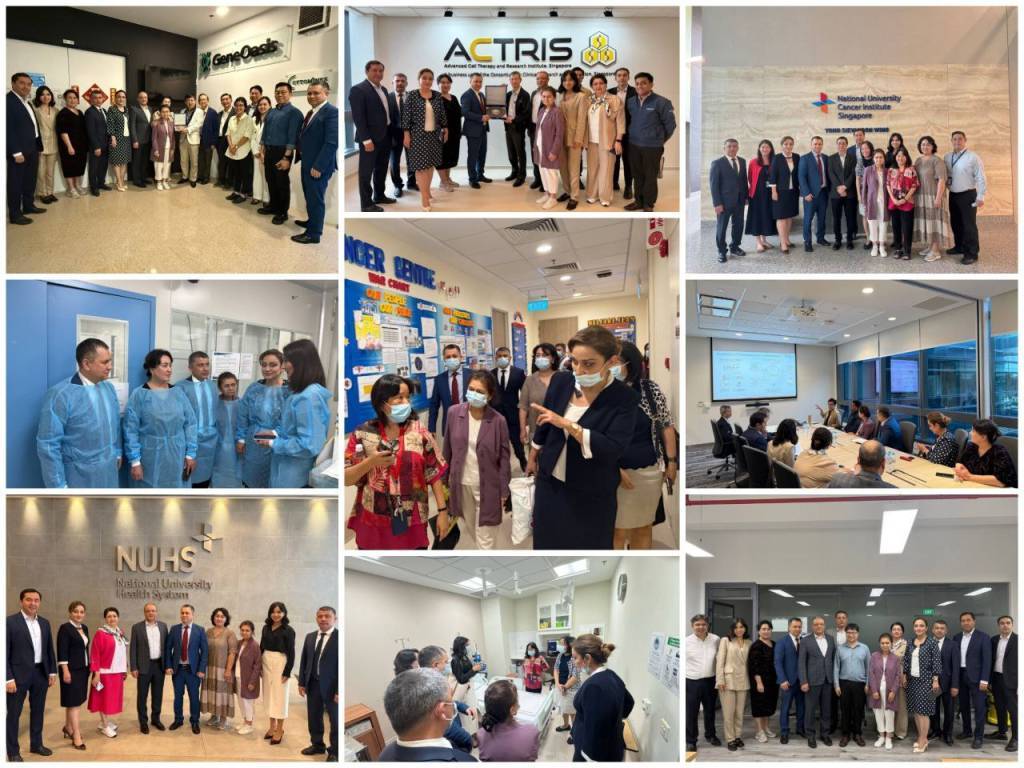
Representatives of the Ministry of Health of Uzbekistan visited Singapore to study the application of biotechnological medicines developed using cell technologies and explore their implementation in Uzbekistan.
According to the Ministry, the delegation visited the National University Cancer Institute of Singapore, where they became familiar with cutting-edge research, clinical practices, and advancements in the education system. Detailed information was provided on modern CAR-T, NK, and DK cell therapy methods and targeted therapy utilizing genetic engineering technologies.
At the Advanced Cell Therapy and Research Institute, discussions were held on methods for the preparation, production, and quality control of pharmaceutical products and the requirements of GMP standards and relevant regulations established for these medicines. The Uzbekistan delegation then explored the technological, testing, and measuring equipment used by the Esco Lifesciences Group in the production of biotechnological drugs based on cellular technologies in compliance with GMP standards.
At Gene Oasis Pte Ltd., the delegation examined the process of developing and implementing innovative medicines used in cellular therapy. Discussions focused on the joint study of cutting-edge advancements in cellular therapy for oncology treatment and the introduction of new treatment methods in Uzbekistan.
Following the negotiations, an agreement was reached to develop proposals to strengthen scientific, practical, and medical cooperation, exchange expertise, and identify new collaboration prospects.
Mohigul Qosimova, UzA








